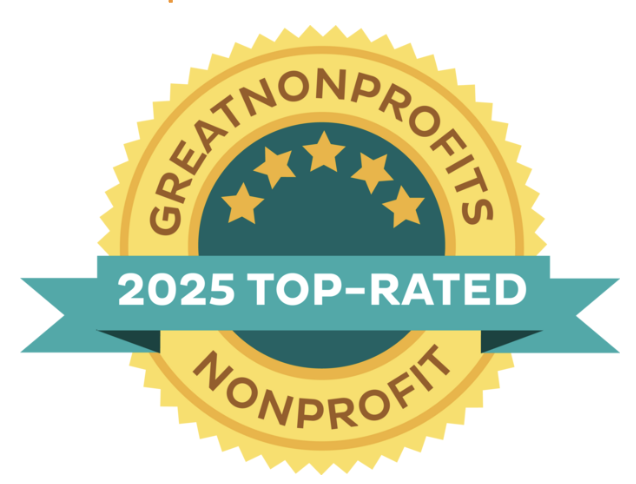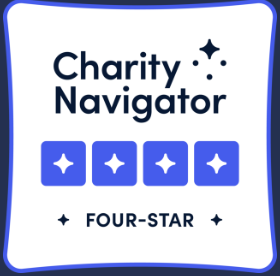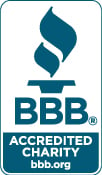The Tandana Foundation partners in a variety of ways with academic institutions. We love to enrich students' learning with multiple perspectives, community based learning experiences, and engagement with theory and practice that are mutually-informing and closely connected. Tandana has been coordinating intercultural programs since 2007 and has hosted groups from many academic institutions including Colgate University, University of Cincinnati, Northeastern University, George Washington University, University of Dayton, Lindsey Wilson College, and others in Ecuador. We have also provided on-campus academic programs for Whitman College, Miami University, University of Dayton, University of Colorado Colorado Springs, and more. For more information, please contact us at  info [at] tandanafoundation.org or visit Tandana’s
info [at] tandanafoundation.org or visit Tandana’s 
 blog. For information about internships, please see pages about
blog. For information about internships, please see pages about  internships in Ecuador and
internships in Ecuador and  online volunteer opportunities.
online volunteer opportunities.
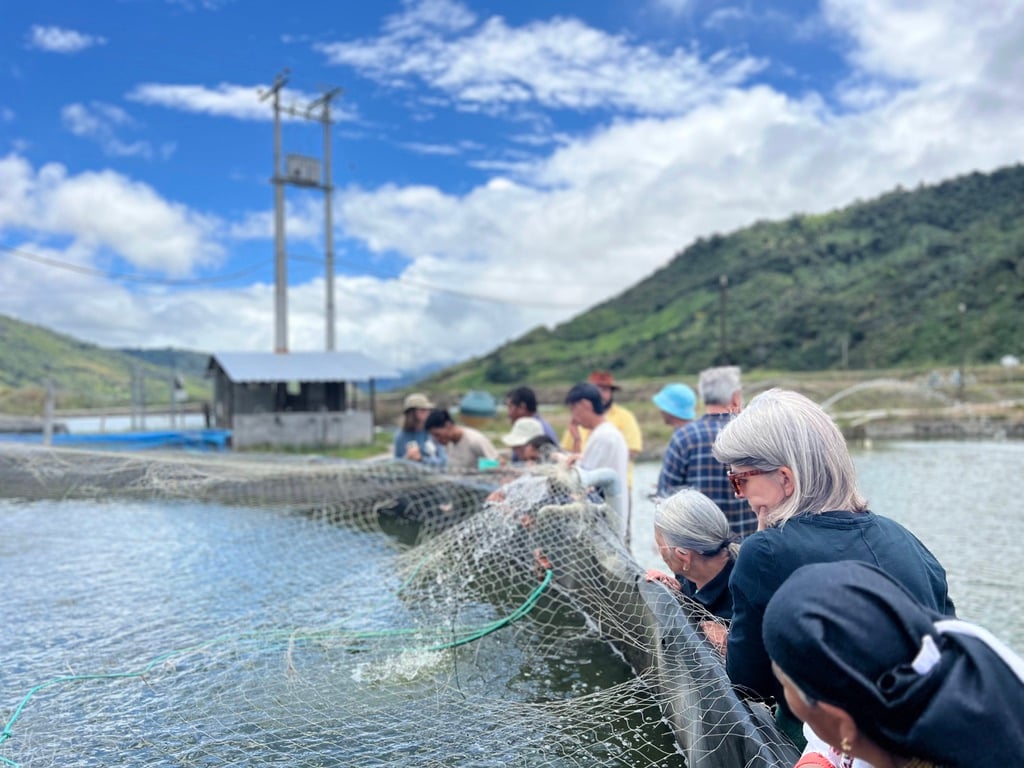
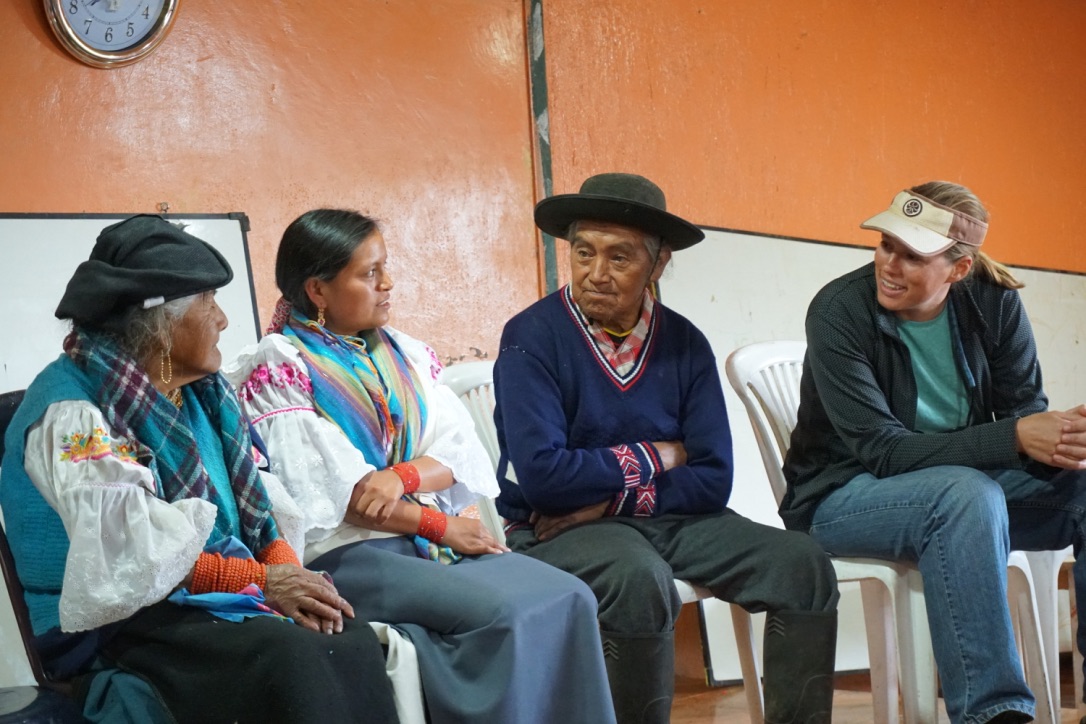
The Tandana Foundation can offer short-term study abroad programs for students in the Otavalo Canton of Ecuador. Tandana's Founding Director and author of Climbing Together, Anna Taft will work with faculty members to design programs based around a chosen theme that combine intercultural interaction, service learning, conversations with local experts, relevant activities, and curricular resources such as readings and videos. Tandana will handle all in-country logistics, risk management, and incident response. We can give you suggestions on international flights (though the institution will book those), provide your group with all the pre-trip information you need, arrange lodging, pick you up at the airport, provide food, and give you a helpful orientation once you arrive. Lodging options include homestays, community center stay, hostel, or hotel. We will arrange for the group to join local residents in working on projects initiated and led by the community. We will also plan and facilitate a variety of cultural activities tailored to the course theme. Tandana partners with local communities and organizations in Ecuador on their initiatives, respecting their ability to define their own priorities and envision ways to make their dreams realities. The local community always makes a significant contribution to the project, and with visitors joining in, there are meaningful opportunities for interaction, connection, and learning. Residents of our partner communities appreciate the chance to share their knowledge, cultures, and lifeways with respectful guests; enjoy connecting with new people; and welcome additional hands to help reach their goals. We love connecting practice with theory and are excited to help you design a seamless experience of academic and community engagement around your chosen curricular theme. Contact us at info [at] tandanafoundation.org for more details.
Examples of potential course themes include but are not limited to:
- Andean and Western Healthcare in Otaval0
- Textiles, Dress, and Indigenous Identity
- Intercultural Bilingual Education
- Legacies of the Hacienda System and Contemporary Indigenous Politics
- Kichwa Language Revitalization
- Indigenous Justice and the Application of Constitutional Rights
- Ritual Embedded in Daily Life throughout the Year
- Sacred Places
- Andean Nutritional and Medicinal plants in Kichwa Otavalo culture
- Indigenous Use of Local and Global Markets: Economic practices in Kichwa Otavalo communities
- Andean Philosophy: Cosmovision and Cosmopraxis
- Community-Centered Engineering and Design
- Public Health in an Intercultural Settings
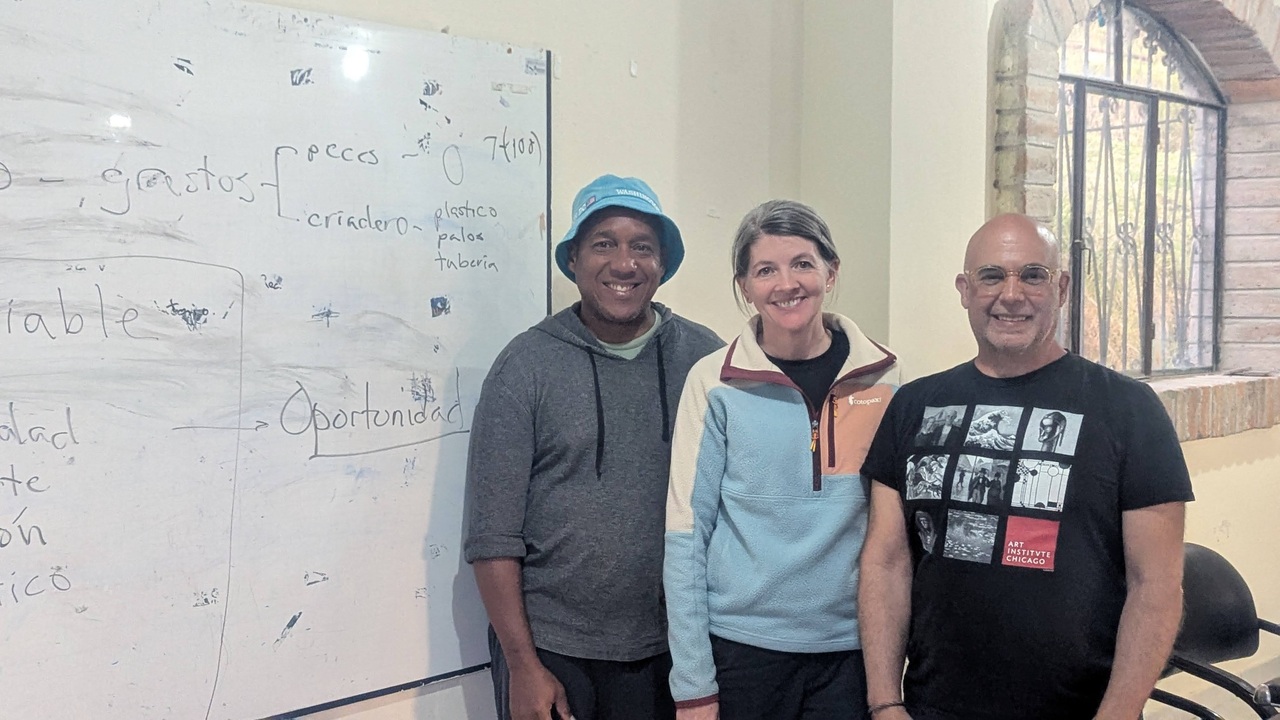
"I will never forget what an incredible opportunity it was to live briefly with a local family in Yambiro, work alongside community members in mingas, and learn how intercultural models function in institutionalized settings. I want my students to have similar experiences. They will return to their communities in the United States more self-aware, connected, and empowered, prepared to create positive change in the world!"
--José Amador, Associate Professor, Global and Intercultural Studies, Miami University
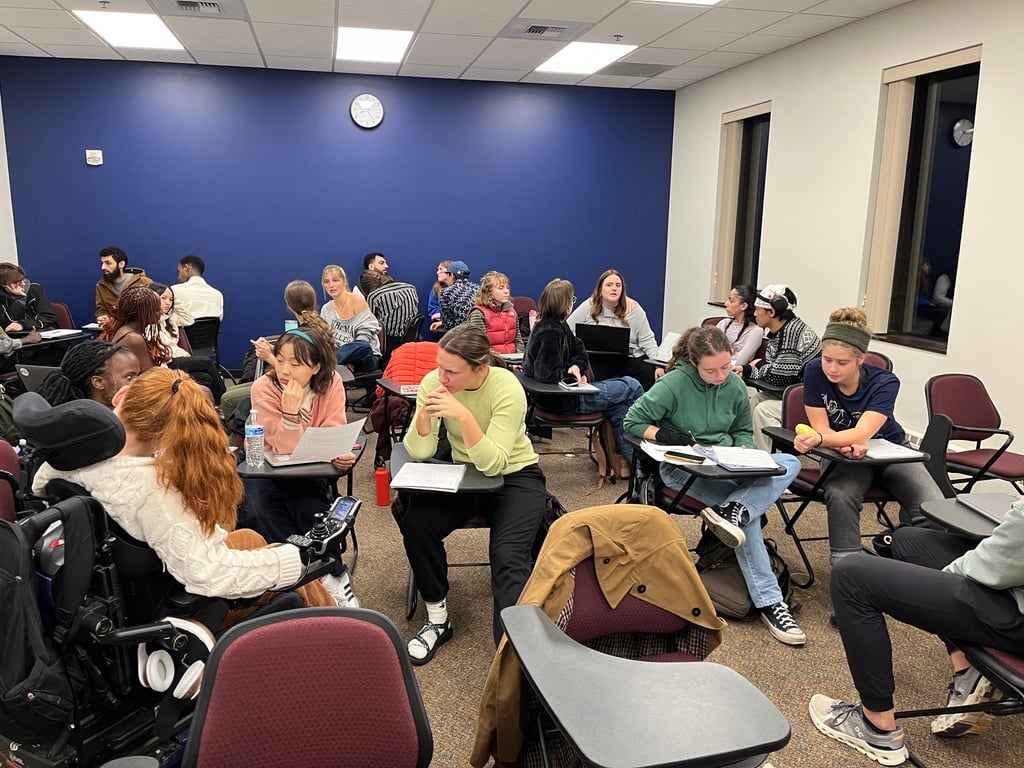
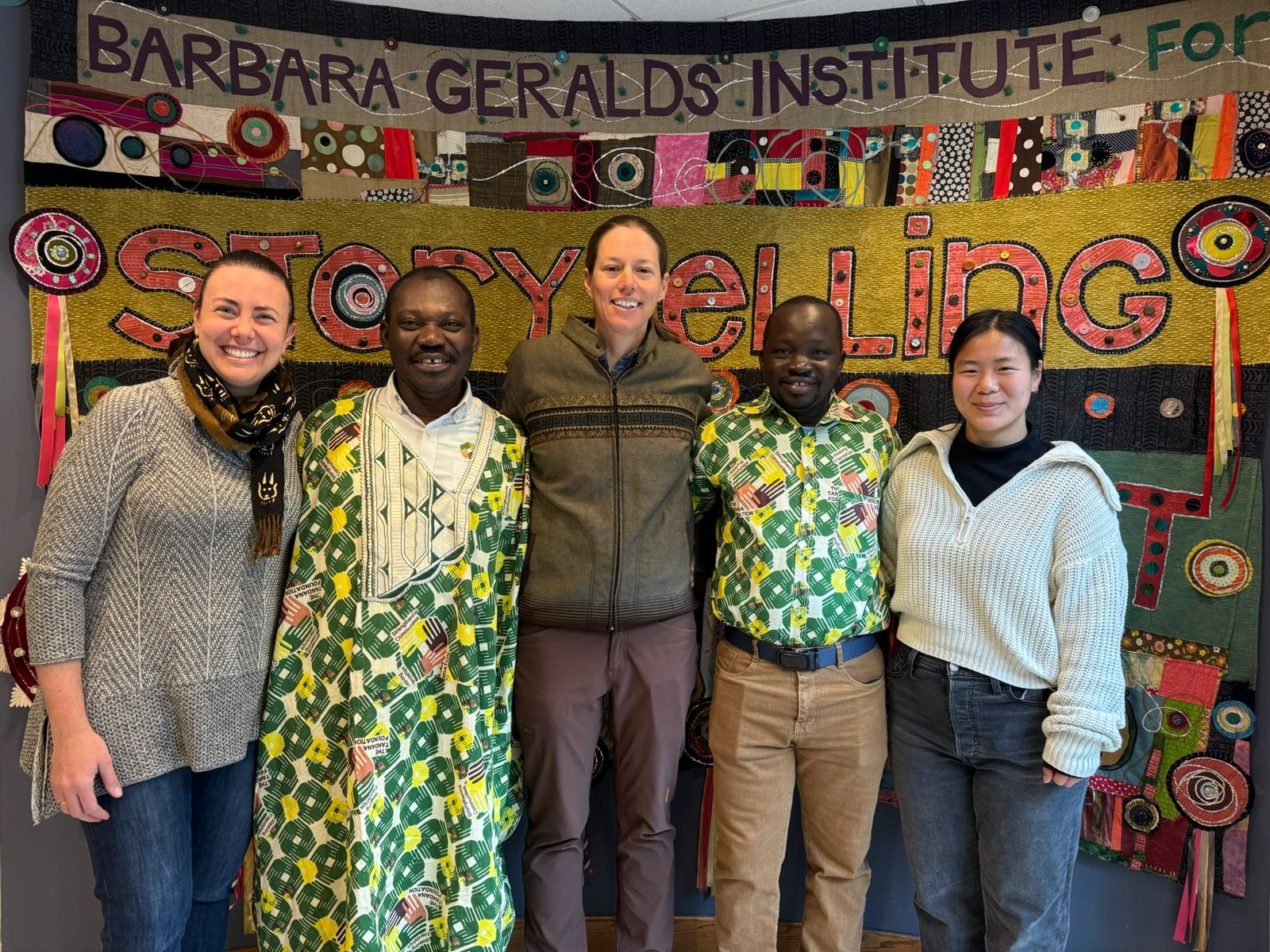
Workshops
Tandana team members can teach credit-bearing workshops or short courses on a variety of topics on your campus. Below are examples of one-credit courses we have taught in the past. Contact us at info[at]tandanafoundation.org for more details.
Global Relationships: A Personal Approach to Community Development
This workshop addresses key issues in development theory from the perspective of Anna’s intimate experience working on the ground with communities in sustained relationships, illuminating for students both how theory can play out in concrete work and how the realities of particular communities and relationships can challenge or refine theories. Topics include differences between a personal and a systemic approach, critical reflection on the concept of “development”, interpreting the expressed wishes of community members, defining communities, strengths and weaknesses of personal and procedural approaches, “voluntourism,” dilemmas in representing international work, and dilemmas in running an organization. Student activities include simulations and role-plays of real-life scenarios, discussions enriched by videos of community members in Ecuador and Mali who partner with Tandana, personal reflection on guiding values and motivations for doing international work, and exercises for envisioning potential projects and approaches. Students come away with a deep understanding of how development theory plays out in concrete realities, at least in the experience of one organization, and with clarity regarding some of the many ethical and practical dilemmas that arise in conscientious international work.
Development in Mali: Experience, Practice, Transnational Collaboration
This workshop addresses key issues in development practice from the perspective of Tandana's Mali team’s intimate experience working on the ground in rural Mali. Themes include the practicalities of organizing projects such as grain banks, literacy classes, and an environmental association, as well as the challenges, successes, and impact of such efforts. Questions regarding the meaning of development in the context of rural Mali, the varied experiences of “partnership” and “participation,” the challenges of transnational collaboration in a small NGO, the effects of development projects on community dynamics, and experiences of the interactions between traditions and modernities will also guide the course. Class formats include presentations by Moussa Tembiné, Housseyni Pamateck, and Anna Taft, question and answer sessions, class discussions of readings and illustrative videos, simulations, and role-plays of real-life scenarios. Students come away with a deep understanding of how development work plays out in one particular context and how local people experience, participate in, negotiate, seek, challenge, and live out the idea of “development.”
Gender and Change in Rural Mali
Drawing on the experiences of Kessia Kouriba and Hawa Yalcouyé, two women from rural Mali who have been leaders in programs promoting women’s leadership, and of Anna Taft, Tandana’s Founding Director, this workshop addresses key issues in gender dynamics in rural Mali from the perspective of the team’s intimate experience working in the field. Themes include challenges facing women in the Tommoguine region of central Mali, various influences leading to changes in gender dynamics, gendered decision-making processes and efforts to change them, and effective transnational collaboration. Class formats will include presentations by the three educators, question and answer sessions, class discussions of readings and illustrative videos, and role-plays of scenarios. Students come away with a deep understanding of how efforts to change certain gender dynamics play out in one particular context and how local women leaders experience the challenges and successes of this work.
Andean Worldview and Global Interactions: Understanding and Strengthening Indigenous Culture in Otavalo, Ecuador
Drawing on the experiences of Margarita Fuerez and Segundo Moreta, two Kichwa Otavalo leaders who have been involved in strengthening, sharing, and representing aspects of their culture in various ways, and of Anna Taft, Tandana’s Founding Director, this workshop addresses key issues in Andean worldview and philosophy, interculturality, promotion and revitalization of Kichwa Otavalo culture and language, sharing and representing aspects of indigenous culture in a globalized context, and transnational collaboration in cultural promotion. Class formats include presentations by the three educators, participatory demonstrations of Kichwa Otavalo practices, question and answer sessions, and class discussions of readings and illustrative videos. Students will come away with a basic understanding of an Andean worldview and its expressions in Kichwa Otavalo practice, as well as familiarity with the complexities of promoting, revitalizing, sharing, and representing aspects of an indigenous culture for various audiences, both local and foreign.
Transnational NGOs in Collaboration with Communities
Drawing on the experiences of Anna Taft, Tandana’s Founding Director, Madjalia Seynou, FarmSahel’s Executive Director, and Khaing Zar Oo, Shanta Village Partners’ Global Programs Manager, this workshop addresses key issues in transnational collaboration, development, and partnership with communities in the Global South. It will illustrate theories, concepts, and dilemmas with examples from concrete practice in Burkina Faso, Ecuador, Mali, Myanmar, and Zambia. Class formats include presentations by the three educators, simulations and scenarios, and class discussions of readings and videos. Students come away with familiarity with the complexities of leading transnational organizations, developing successful partnerships with rural communities, community-led development models, overcoming challenges, promoting women’s inclusion and leadership, and working towards sustainable change. They will examine both ethical and practical dilemmas that arise in conscientious transnational work and envision opportunities for future careers in this field.
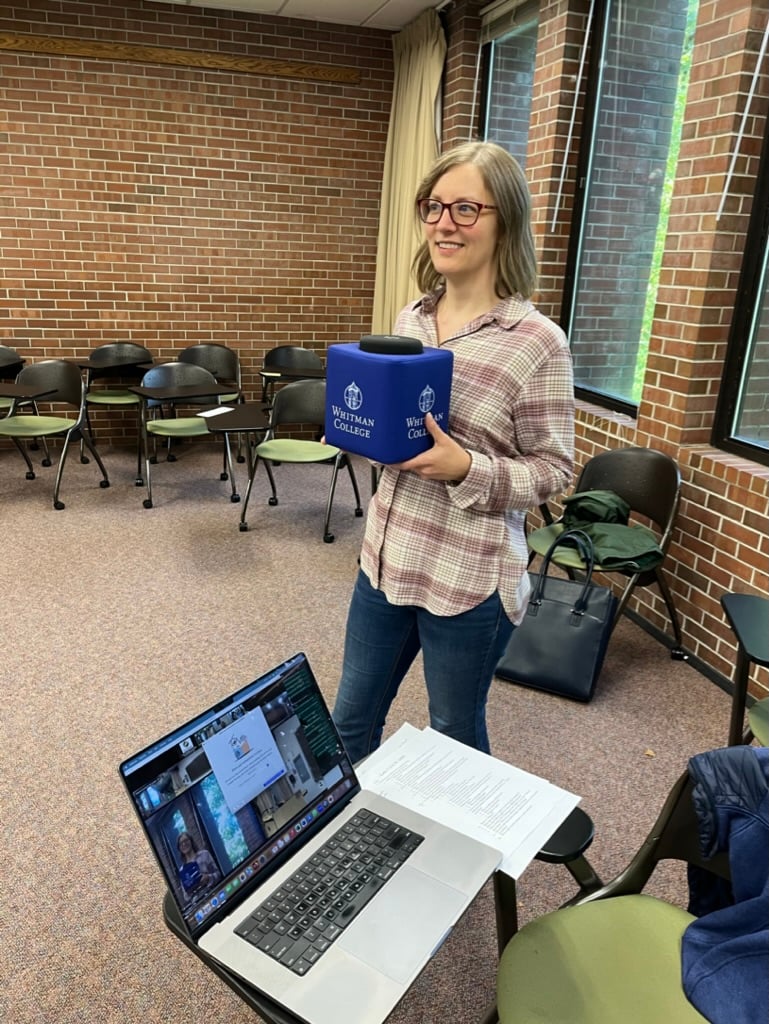
"Workshops like these directly address a question at the heart of Whitman College's mission to help students lead ethical lives of purpose: how do we responsibly address the vast inequalities in power and resources that shape our interactions with others in our global world? Tandana's members and partners have a wealth of experience developing ethical collaborations aimed at building more just ways of living together, and hosting workshops on the Whitman campus is one way to share that learning while also creating opportunities for students to participate in longer-term collaborations beyond the courses themselves."
-- Nicole Simek, Director, Center for Global Studies, Whitman College
Lectures and Panels
Tandana team members can also give lectures and panels on a variety of topics. Some past examples include:
A Relational Approach to Community Development: Experiences in Ecuador and Mali
How did a young woman from Ohio end up in partnership with communities in Ecuador and Mali, and how did those collaborations develop into a unique form of intercultural engagement? Anna Taft will share the journey that led to creation of a transnational nonprofit organization and lessons learned along the way that shaped its unique approach to supporting communities in achieving their goals through relationships based on mutual respect and responsibility. She will also share some advice for young people interested in engaging in global work.
Between Development and Disengagement
International development has often failed to reach its objectives and sometimes even caused harm to the communities it is supposed to benefit. Aware of these problems, some North Americans choose to disengage from transnational work. But the reality is that we cannot avoid participating in global networks that affect people in many countries, and there are vast inequalities in access to resources that need to be addressed. By starting with a first person perspective, taking the relational morality that emerges from face to face encounters as a guide, and prioritizing interaction and discussion over making a predetermined product, we can avoid the dangers of dominant forms of development and generate positive change as communities improve on their own terms, gain sources of pride, and strengthen some aspects of their cultures while choosing to change others. Through experiences with intercultural collaboration, people often enhance and experience their effectiveness, grow in awareness of themselves, each other, and the human condition, and form friendships. Learn how the experiences of one organization illuminate a path between traditional forms of development and disengagement, opening a world of positive possibilities.
Transforming Gender Norms: Opening Small Spaces for Big Change in Rural Mali
This talk is inspired by a Women’s Literacy, Leadership, and Enterprise program generated through a transnational collaboration between local grassroots communities and The Tandana Foundation, a Dayton-based non-profit organization. This program asks us to consider promoting changes in gender dynamics in a way that avoids the dangers inherent in approaching human affairs as if they could be made, as mainstream development has so often done. It embodies an alternative approach that allows the opportunities of action--expressiveness, the remedy of forgiveness, allowance of the unexpected, inclusiveness, flourishing of human relationships, and emergence of meaning—to enable genuine and durable changes. This form of transnational collaboration offers an example of educational, economic, civic, and cultural engagement that supports locally-led transformations that increase inclusion and expand opportunities for women.
Transnational Collaboration and Indigenous Cultures
Anna Taft, author of Climbing Together: Relational Morality and Meaningful Action in Intercultural Community Engagement and Founding Director of The Tandana Foundation, will share experiences and insights from 18 years of collaboration with Kichwa Otavalo communities in Ecuador and Dogon communities in Mali. In these two very different contexts, The Tandana Foundation has supported many local initiatives, including indigenous language books and educational programs, a Kichwa Otavalo cooking school, and more. One of the most important initiatives it supports in Mali is also promoting a significant cultural change regarding gender roles and women's participation in public decision-making processes. Through this presentation, consider the complexities of transnational support for indigenous cultural promotion and change efforts. When and how is it appropriate for an outside organization to support these kinds of initiatives?
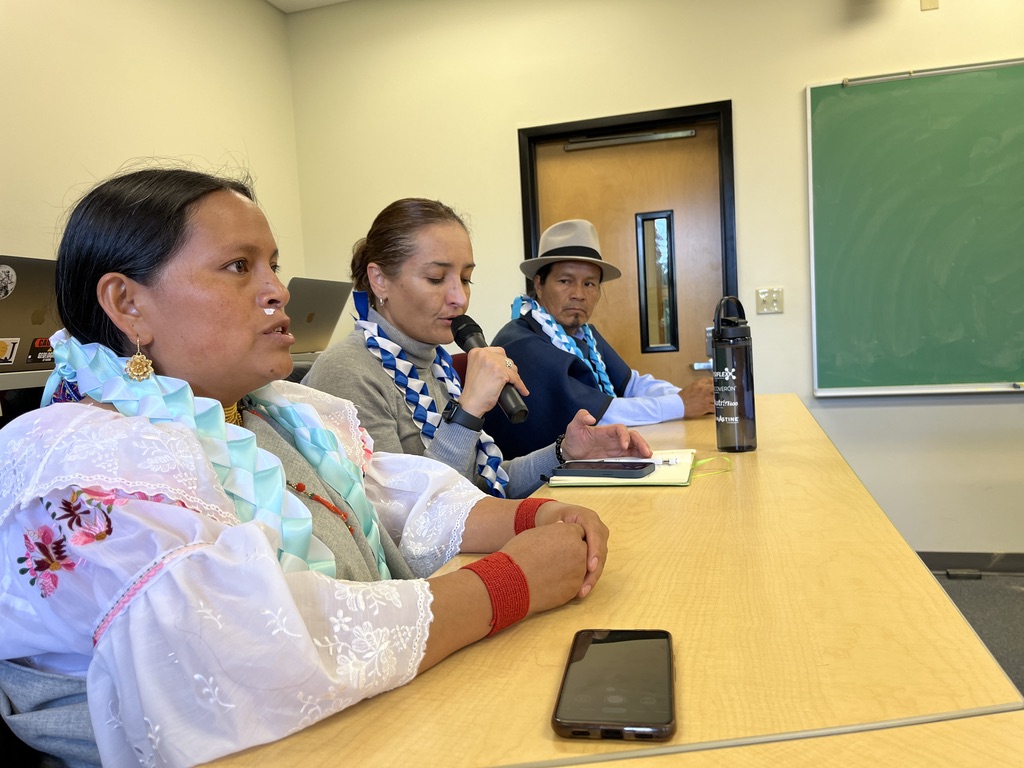
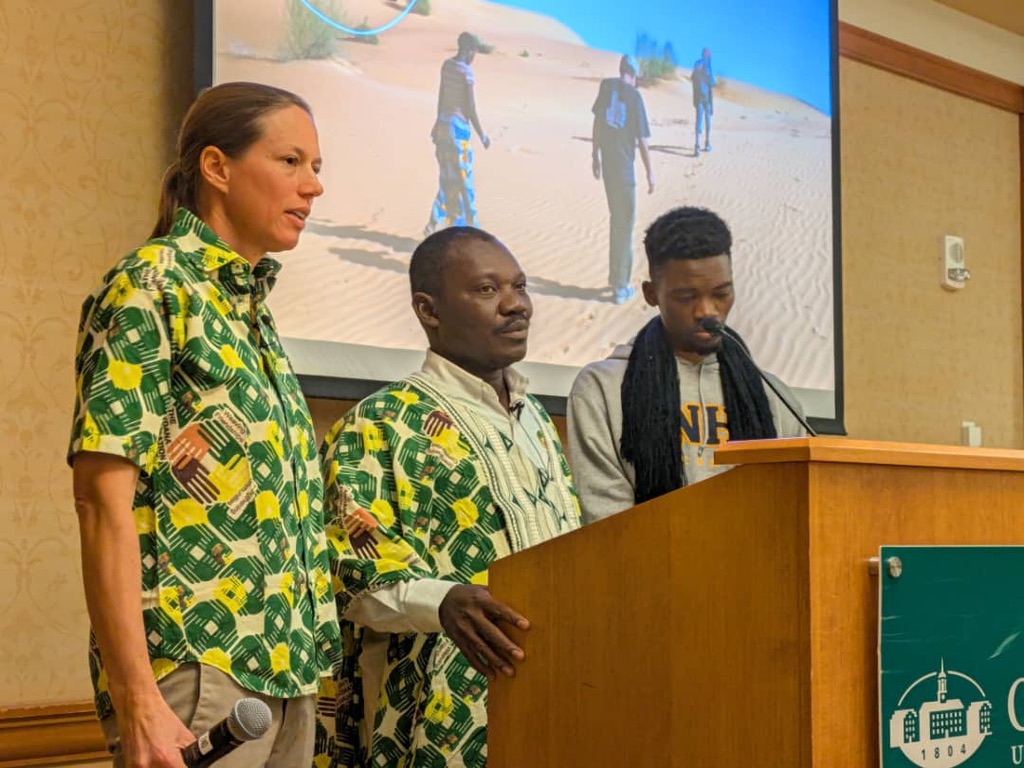
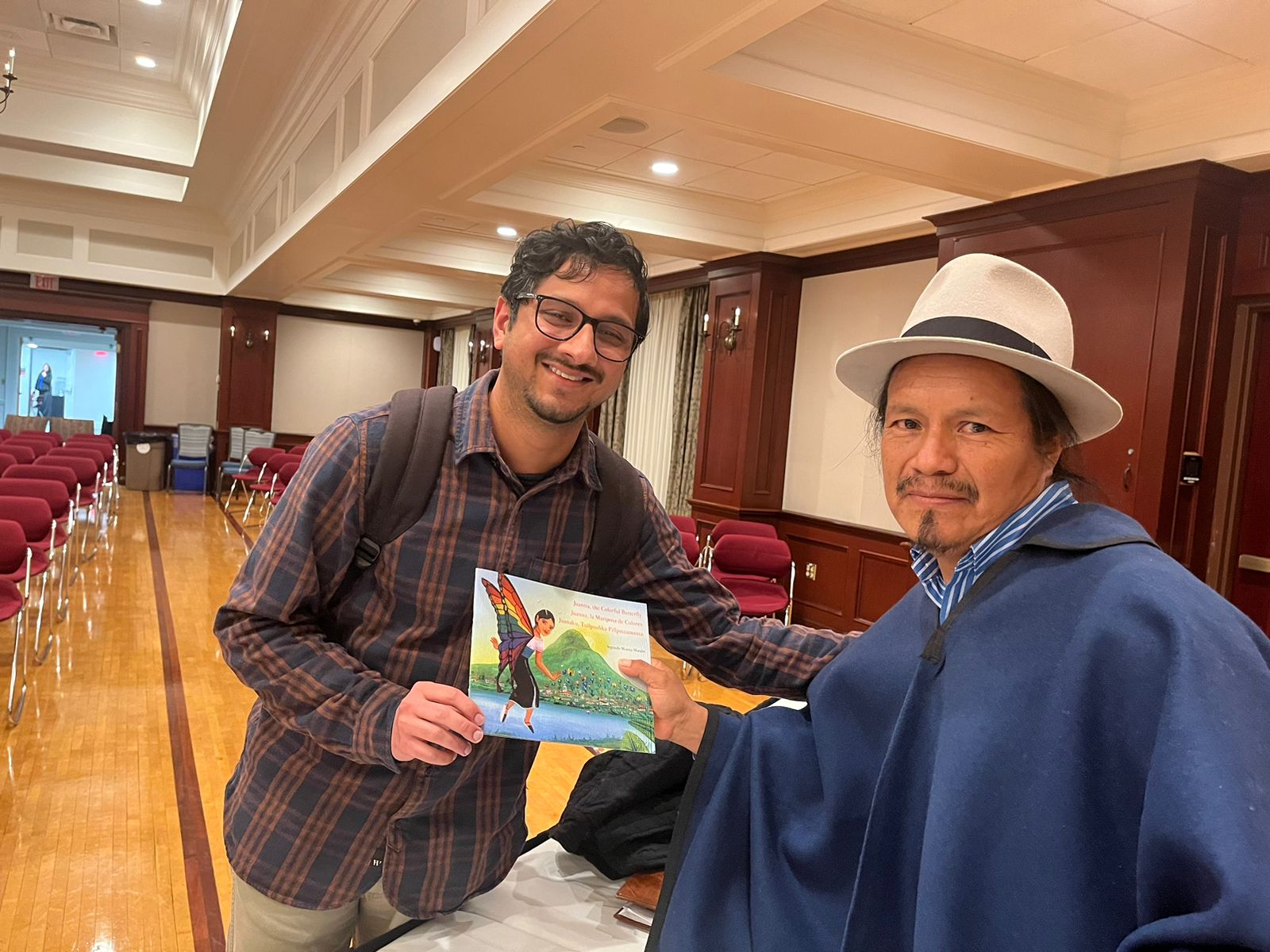
"What followed was much more than a regular talk, it was a multi-perspectival panorama shedding light on the deep-rooted challenges faced by grassroots workers of The Tandana Foundation, and more importantly an inspiring account of the engaged methods, ethical negotiations, and big wins the foundation strives to accomplish everyday through small spaces of change."
-- Indivar Jonnalagadda, Assistant Professor of Global and International Studies, Miami University
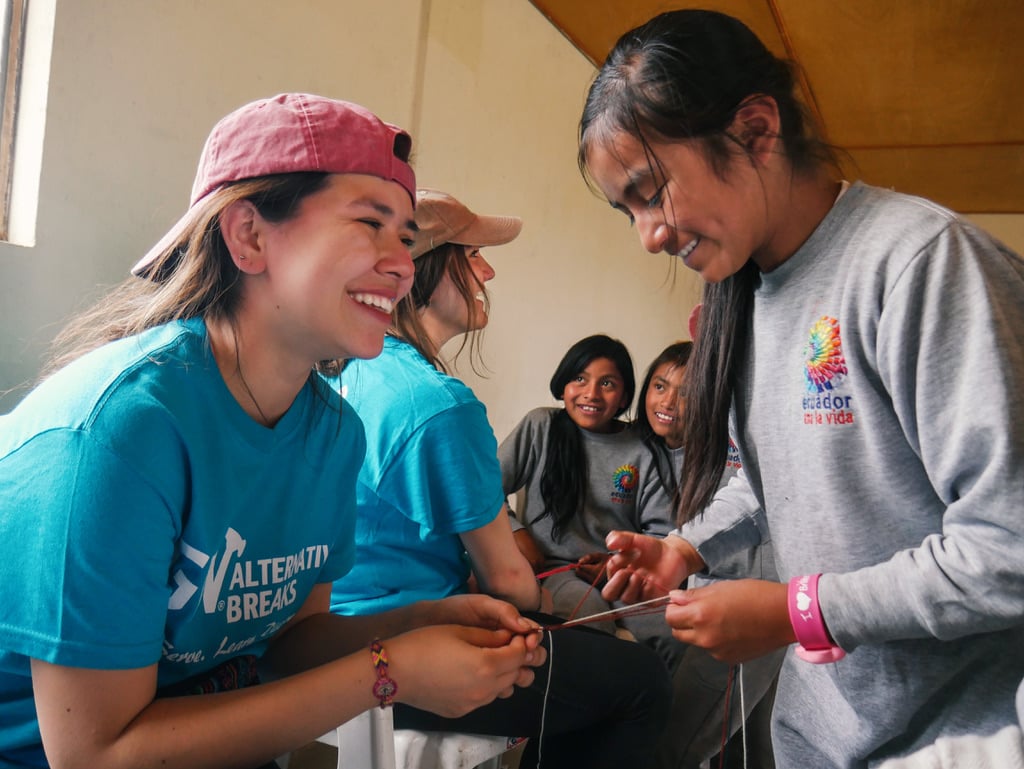
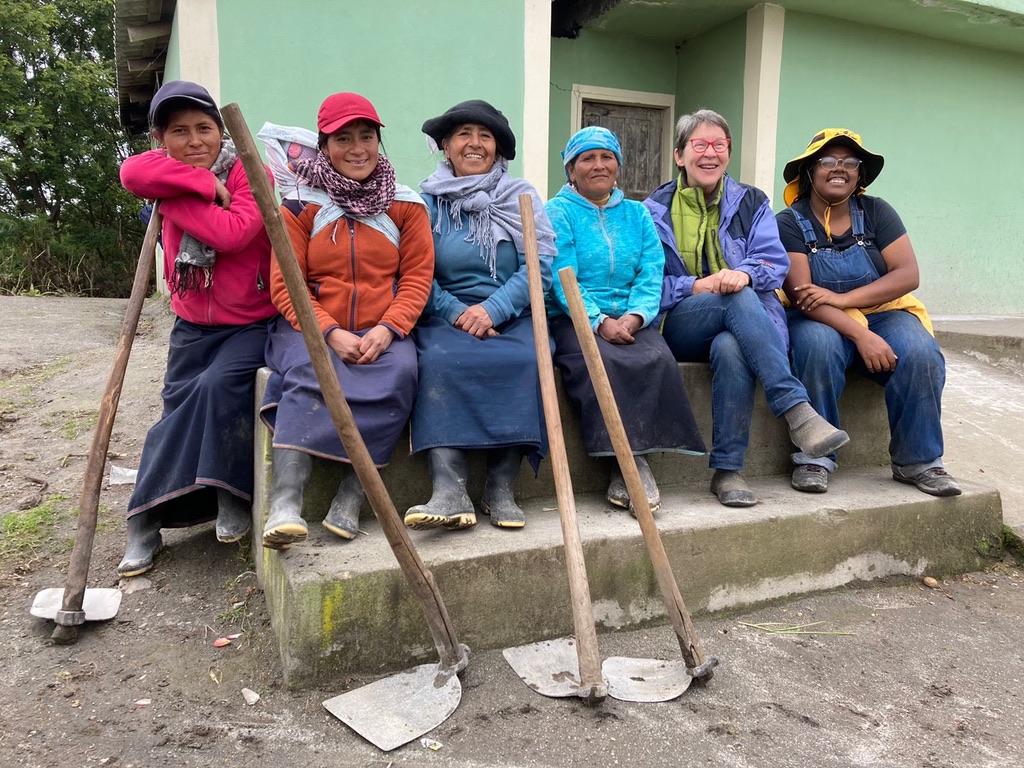
The Tandana Foundation offers co-curricular programs for university students, such as alternative break programs and other trips that don't involve academic credit. Please contact us at info [@] tandanafoundation.org for more information. These programs allow your students to:
We typically work for about half the day, and then have other types of fun in the afternoon. If you are working within one community, we often arrange activities with our friends there, such as playing soccer, baking bread, learning about local handicrafts, having a bonfire, etc. We also like to go on hikes and participate in other cultural activities, such as taking a traditional cooking class, visiting a master weaver, or exploring the Otavalango museum. Or we might schedule activities that are geared toward your particular group, such as taking gardeners to a rose plantation or a medicinal plant tour or, for students learning about Ecuador's history and politics, arranging for a variety of speakers to share their perspectives on the hacienda system. If you'd like, we can plan other educational or reflection activities that will help your group get the most out of the experience. Finally, we try to leave time to explore the famous Otavalo handicraft market so you can buy souvenirs and gifts to bring back home. There's so much to see and do--we can't wait to talk with you about the options and design a trip that's just right for you.
And of course, we'll take care of most of the logistics for you. We can give you suggestions on international flights (though you'll get those on your own), provide your group with all the pre-trip information you'll need, book your lodging, pick you up at the airport, and give you a helpful orientation once you arrive. Throughout your stay, you won't have to give a second thought to food, transportation, activities, or supplies for your service activity. We'll do what we do best so you can do yours.
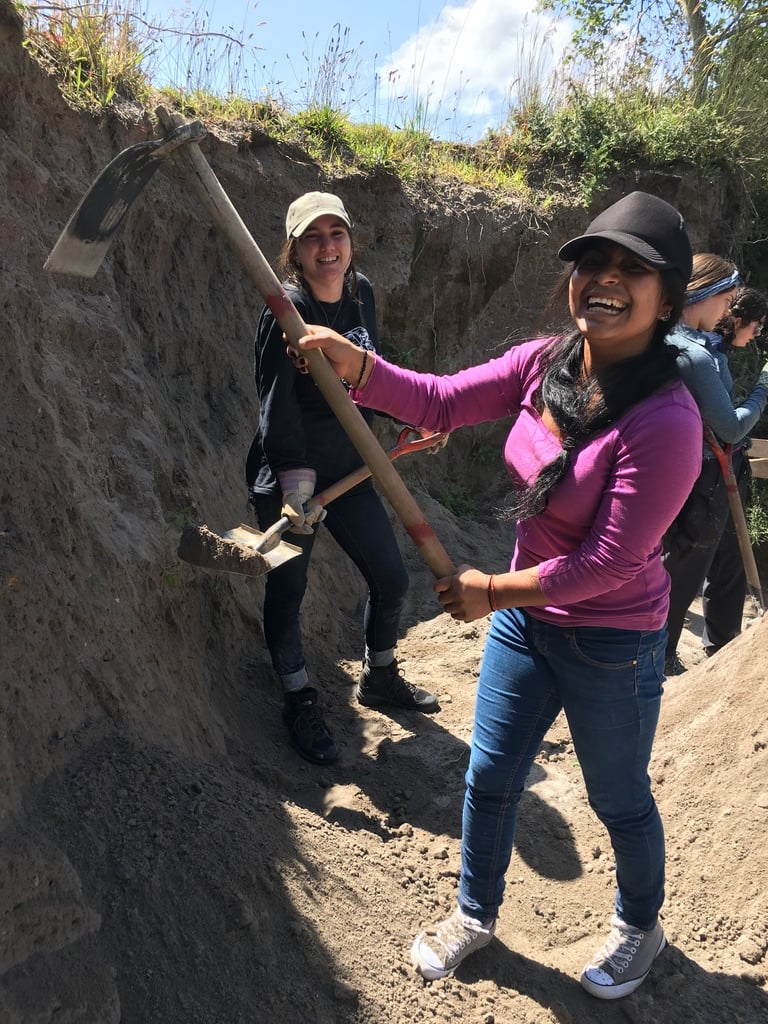
"Thank you all so much for a fantastic week! We are so grateful for all of your work in helping us put this together and creating such an amazing, exciting, and mind-opening cultural-service experience! You really opened us up and allowed us the ability to do something that I am sure will stay with us for a long time to come. Back in Boston we all really miss the community and learning and growing with all of you as our peers and guides through this amazing journey!"
-- Kayla, student leader from Northeastern University
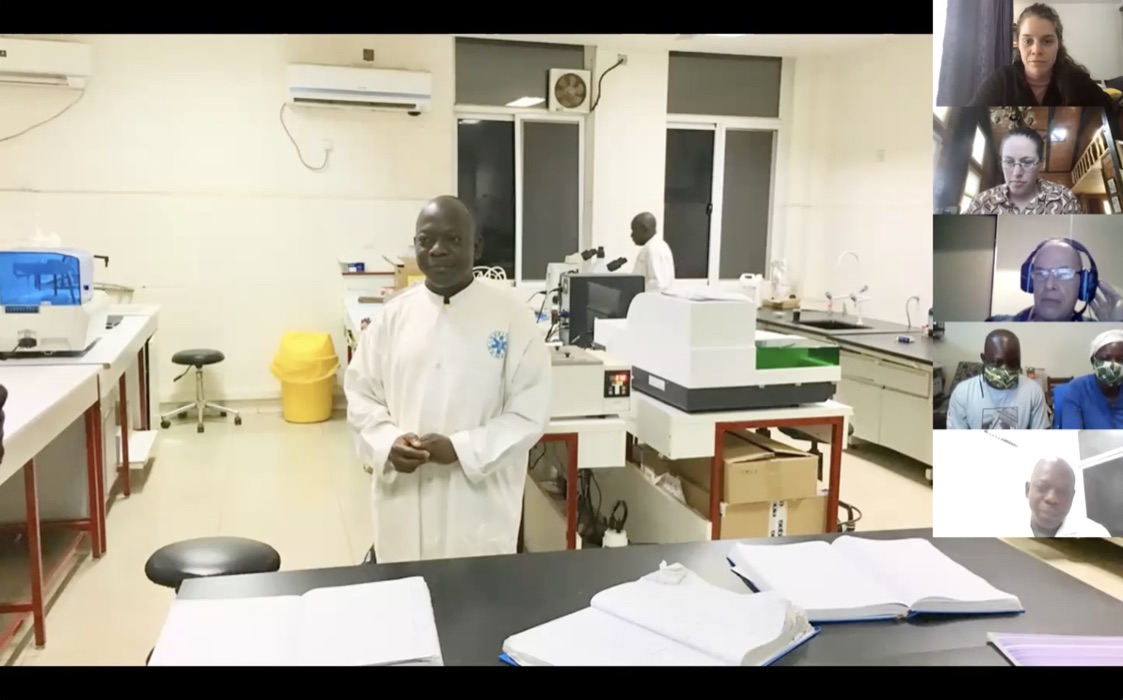

Online Courses
Health in Ecuador and Mali: Pandemic, Race, Culture
This is a 1 credit, remote-learning workshop for students on the intersections of the COVID-19 pandemic, race, and culture and their effects on health in two different global contexts: Ecuador’s Otavalo Canton and Mali’s Bandiagara District. Drawing on the insights of a variety of speakers from both Ecuador and Mali, this course will address issues in the experience of the pandemic, encouraging students to draw comparisons between their own experiences and those of speakers from these two very different contexts. It will also address intersections of race and culture with health care more generally. Themes will include scarcity of resources for mitigating the pandemic, relationships between government ministries, NGOs, and other actors, data and reporting, and cultural factors affecting response to COVID-19, as well as relationships between Western and local medicine in both contexts, racial disparities in access to health care in Ecuador, and transnational collaborations on health care work. Class dynamics will include Zoom meetings with live presenters from Ecuador and Mali, Zoom discussions, readings, videos for students to watch, and a chat discussion board. Tandana will provide simultaneous interpretation for presenters.
Strengthening Indigenous Languages: Tommo So and Kichwa
This is a six-week, 1 credit, remote-learning workshop for students on the variety of activities, efforts, and dynamics involved in valorizing, revitalizing, and writing the Kichwa and Tommo So Languages. Drawing on the insights of a variety of speakers from both Ecuador and Mali, this course will address issues in the contemporary dynamics and valorization efforts of the Kichwa and Tommo So languages. Themes will include developing and standardizing writing systems for oral languages, developing educational materials and books, teaching local languages to various audiences, personal significance of valorizing one’s own language, resources and partnerships for linguistic work, multilingualism, and community language dynamics.
Class dynamics will include Zoom meetings with live presenters from Ecuador and Mali, Zoom discussions, readings, online language lessons, videos for students to watch, and a chat discussion board. Tandana will provide a combination of simultaneous and consecutive interpretation for presenters, in order to give students varied linguistic experiences.
Climate Change in the Sahel: Local Adaptations
Andean and Western Healthcare in Otavalo, Ecuador
Remote Guest Speakers
The Tandana Foundation offers a remote speaker’s bureau that can bring multiple unique perspectives on real-life issues to your classroom or meeting. Drawing on our long-term relationships with community members in Ecuador and Mali, we can help you select the speakers that will illuminate the themes of interest to your course or program, sharing the experiences, efforts, and knowledge of local leaders. Most speakers will require interpretation into English, and we provide this service, included in the fee. We also provide background information to help your students understand the context, an introduction for each speaker, and resources to further explore the topic afterward. This is a chance to show your students the value of local knowledge from Mali and Ecuador and to balance textual and theoretical learning with specific experiences. Scheduling is subject to availability of each speaker. Contact us at info [at] tandanafoundation.org to make arrangements.
Fees:
All packages include background information for preparation, introduction, speaker, and list of resources. If simultaneous interpretation is required, please add $150 per session. Contact us for details about languages each speaker can offer.
1 speaker – $250 without interpretation; $400 with interpretation
Panel of 2 speakers in one session: $350 without interpretation; $500 with interpretation
Panel of 3 speakers in one session: $450 without interpretation; $600 with interpretation
Themes:
Topics include, but are not limited to:
Designing Community Development Initiatives for Success and Sustainability |
|
Disrupting Market Injustices through Collaborative Enterprises |
|
Intercultural Public Heath Work in rural Ecuador |
|
Community-Based Public Health Work in rural Mali |
|
Kichwa Language Valorization and Revitalization |
|
Creating the first written materials in the Tommoso language |
|
Bilingual Education in Ecuador |
|
Adult Literacy Education in Mali |
|
Transforming Gender Dynamics through Women's Leadership Programs in Rural Mali |
|
Gender Dynamics and Women's Roles in Rural Ecuador |
|
Community-based Environmental Conservation and Regeneration |
|
Andean Philosophy, Cosmovision, Cosmopraxis |
|
Medicinal and Traditional Food Plants in Ecuador |
|
Climate Change Adaptation in Ecuador |
|
Climate Change Adaptation in Mali |
|
Community-Based Entrepreneurship |
|
Community-Based Tourism |
|
Community-Centered Engineering and Project Design |
|
Andean Medicine and Intercultural Medicine in Ecuador |
|
Author Talks |
|
Transnational NGOs and Indigenous Cultures |
|
Decolonizing Transnational Collaboration |
|
Engaging with Communities through Action |
|
Between Development and Disengagement |
|
A Relational Approach to Community Engagement |
|
Trilingual Storybooks: Creating Literature in Tommoso and Kichwa |
|
Supporting Food Security in Mali |
|
Supporting IDPs in Mali |
|
Indigenous Justice in Ecuador |
|
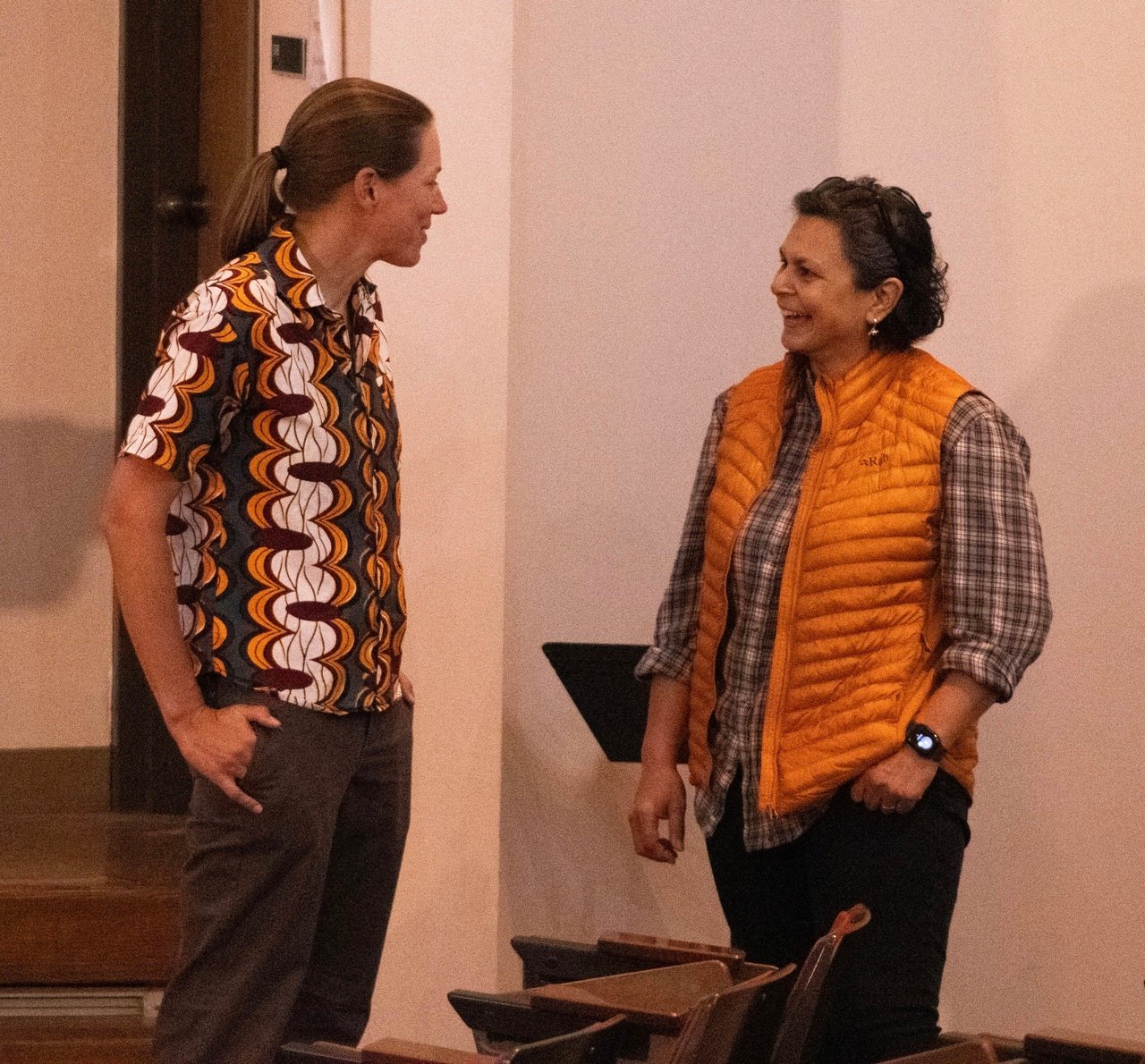
“In my conversations with Anna, we agreed on the importance of creating opportunities for our students to see the logistics of healthcare management, particularly in rural areas, that have racial disparities, that are trying to balance Westernized development pressures with cultural preservation… That kind of tension is not easy to navigate. The very first step for our students is understanding the dynamics of the situation, having those tensions modeled, explained and articulated in visceral ways. And I think that’s what this workshop did fantastically.”
--Leena Knight, Director of the Center for Global Studies, Whitman College
